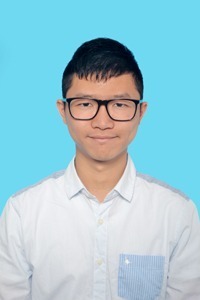
Felix Lo Tze Chun
2016-17 Term 1
A Queer Writing in Crevasse: Spectrality, Subjectivation, Subversiveness
Supervisor:
Abstract
As a relatively uncharted territory in literary studies, queer writing is, in popular belief, often simplified as a collective body of works that thematically deal with the queer. This definition of queer writing is reductive of its potential as a liberation from normative ideals, and fails to delineate how this genre decenters the hegemony of heternormativity. Most problematic of all is that this understanding further promotes the binarism between heterosexuality and non-heterosexuality, affirming the former as unquestionably legitimate while casting the latter as an alien and deviant Other. As much as queer writing purports to demolish heteronormativity, it must sprout from the very bedrock of what it seeks to destroy, thus inevitably dependent and relational. However, such dependency on and inescapability from the heteronormative discourse should not be viewed as only restrictive, but also instrumental in achieving its wider goal of subversion. It enables queer writing to gain a spectral force that shapes our awareness of marginalised subjectivities. This paper would first closely examine the dialectics of oppression and liberation in the politics of queer writing as laid out in the above and apply the refashioned concept of queer writing to Crevasse by Nicholas Wong, a Hong Kong gay poet, with the hopes of interrogating how the collection may open up new possibilities for queer writing to subvert and to destabilise.
Reflection
This capstone project does not merely summarise, assemble, or regurgitate. A study of this scale calls for genuine passion, scholastic innovation, and a strong sense of ownership to my work. Undertaking this independent research, I have to connect the knowledge I gained from a vast sea of disciplines and fuse them into a coherent whole in a way that assigns them each new meaning. It is a task that pushes the limits of my creativity and abstract thinking, permissible only in this project wherein I am granted maximal freedom in operation and in selection of topic. Being able to critique issues that I find strong personal echo with gives this project far greater significance than just academic achievement, but prompts me to reflect on my own identity and the meaning of literature to me. It is an intellectual dialogue with the texts, with the authors, and more importantly, with myself.






